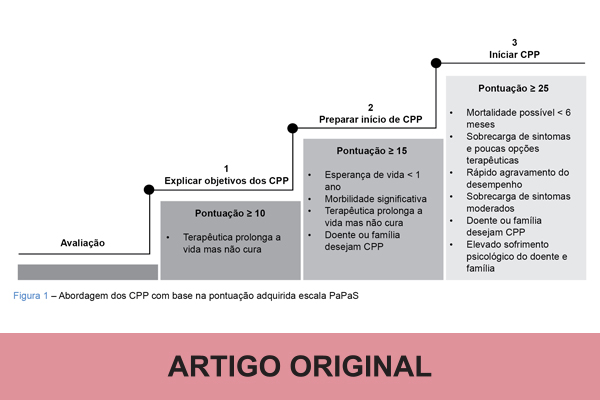SOCIAL MEDIA
Portuguese Medical Association's Scientific Journal

Introduction: The Pediatric Palliative Screening Scale (PaPaS Scale) was designed to help professionals to identify life-limiting or life-threatening children/young people with complex chronic conditions who would benefit from pediatric palliative care and facilitate their timely and appropriate referral. The aim of this study was to translate, culturally adapt and validate the PaPaS Scale for the Portuguese pediatric population.
Material and Methods: A quantitative methodological study involving translation, cultural adaptation and validation of a scale was performed. In the first phase, the translation and cultural adaptation of the original version of the PaPaS Scale from English to European Portuguese was undertaken. The second phase consisted of evaluating the psychometric properties of the Portuguese version of the PaPaS Scale.
Results: Fifty-one enquires pertaining to children/young adults with complex chronic conditions were completed and returned, the sum of the responses to the items on the scale revealed that 84.4% of the patients had an indication for referral to pediatric palliative care. The internal consistency analysis obtained a value of Cronbach’s alpha above 0.80, so the scale was considered adequate for the analyzed data. In our sample, the item-total correlation values indicated that the 11 variables measured the PaPaS Scale with good reliability and unidimensionally. The confirmatory factor analysis suggested that the items were significant, consistent, and presented convergent validity globally. Only item “2.2. Treatment side effects” obtained a value below the defined threshold.
Conclusion: The PaPaS Scale was translated and adapted to the European Portuguese version, allowing its immediate use in the Portuguese population. It will be essential to design multicentric studies to expand the knowledge about the psychometric characteristics of this scale.